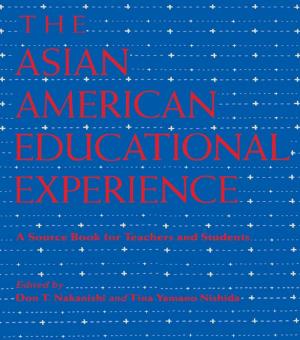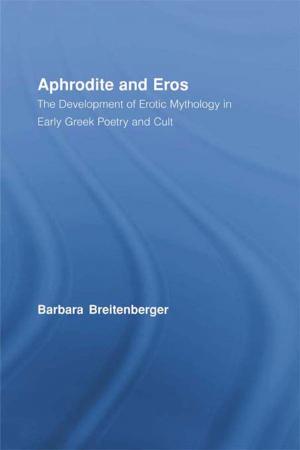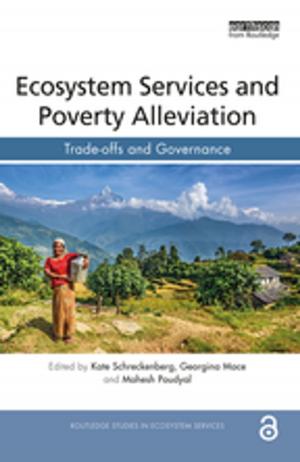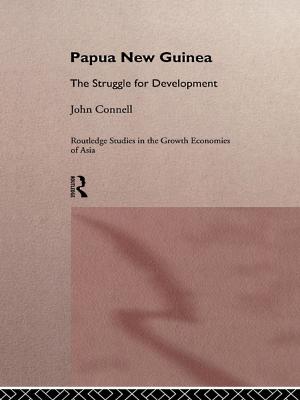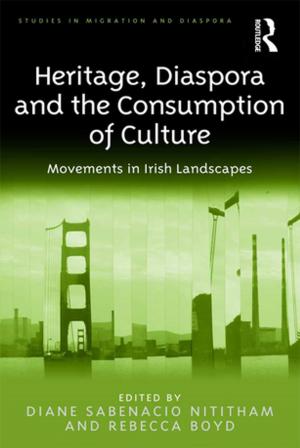Imagination for Inclusion
Diverse contexts of educational practice
Nonfiction, Reference & Language, Education & Teaching, Teaching, Teaching Methods, Educational Theory| Author: | ISBN: | 9781317425564 | |
| Publisher: | Taylor and Francis | Publication: | February 12, 2016 |
| Imprint: | Routledge | Language: | English |
| Author: | |
| ISBN: | 9781317425564 |
| Publisher: | Taylor and Francis |
| Publication: | February 12, 2016 |
| Imprint: | Routledge |
| Language: | English |
Imagination for Inclusion offers a reconsideration of the ways in which imagination engages and empowers learners across the education spectrum, from primary to adult levels and in all subject areas. Imagination as a natural, expedient, and exciting learning tool should be central to any approach to developing and implementing curriculum, but is increasingly undervalued as learners progress through the education system; this disregards not only imagination’s potential, but its paramount place in informing truly inclusive approaches to teaching and learning.
This book presents a new theory of imagination and includes discussion about its application to teaching and learning to increase the engagement of disaffected students and reinvigorate their relationships with curriculum content. Chapters include key ideas and discussion surrounding the benefits of introducing imaginative practices into the classroom for learners from a range of marginalised backgrounds, such as young people with disabilities and adult learners from socio-economically disadvantaged environments. In exploring imagination in the practice of inclusive education, the book includes chapters from researchers and practitioners in education who have fresh ideas about how learners and teachers have benefited from introducing imaginative pedagogies.
The diverse collection, featuring writers with backgrounds from early childhood to adult education, will be essential reading for academics and researchers in the fields of education, inclusive education, social policy, professional development, teacher education and creativity. It will be of particular interest to current and pre-service teachers who want to develop inclusive practice and increase the engagement of all students with formal education.
Imagination for Inclusion offers a reconsideration of the ways in which imagination engages and empowers learners across the education spectrum, from primary to adult levels and in all subject areas. Imagination as a natural, expedient, and exciting learning tool should be central to any approach to developing and implementing curriculum, but is increasingly undervalued as learners progress through the education system; this disregards not only imagination’s potential, but its paramount place in informing truly inclusive approaches to teaching and learning.
This book presents a new theory of imagination and includes discussion about its application to teaching and learning to increase the engagement of disaffected students and reinvigorate their relationships with curriculum content. Chapters include key ideas and discussion surrounding the benefits of introducing imaginative practices into the classroom for learners from a range of marginalised backgrounds, such as young people with disabilities and adult learners from socio-economically disadvantaged environments. In exploring imagination in the practice of inclusive education, the book includes chapters from researchers and practitioners in education who have fresh ideas about how learners and teachers have benefited from introducing imaginative pedagogies.
The diverse collection, featuring writers with backgrounds from early childhood to adult education, will be essential reading for academics and researchers in the fields of education, inclusive education, social policy, professional development, teacher education and creativity. It will be of particular interest to current and pre-service teachers who want to develop inclusive practice and increase the engagement of all students with formal education.





